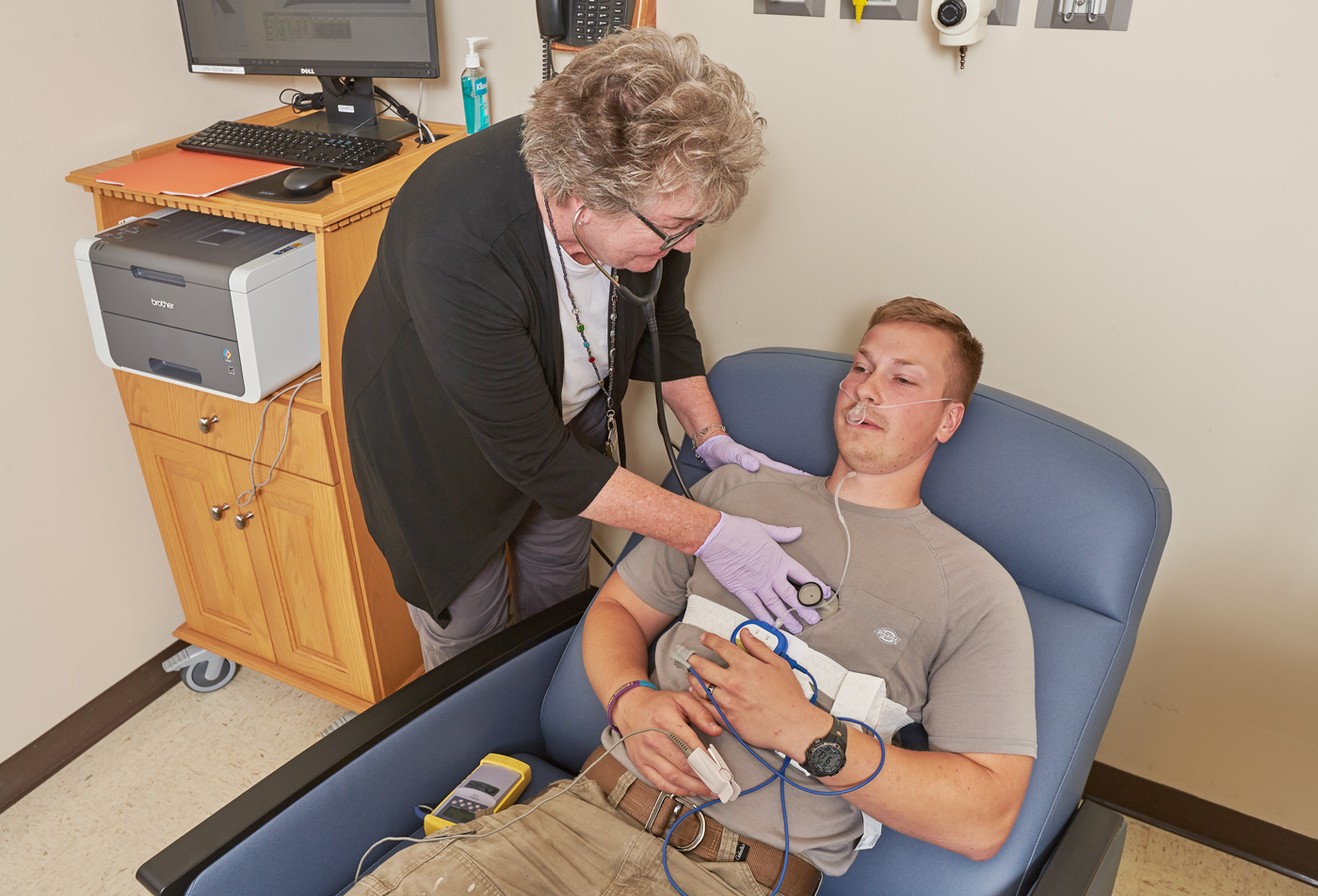Atrial Fibrillation And Sleep Apnea
Published October 3, 2023

About half of patients with atrial fibrillation (AFib) also have obstructive sleep apnea (OSA), according to studies by the Heart Rhythm Society — findings that are supported by the Journal of Atrial Fibrillation. Health providers are beginning to understand that the two conditions often overlap and that addressing both can lead to better patient outcomes.
Atrial fibrillation is an irregular heartbeat. It is characterized by fluttering in the chest, which can be inconsistent and easy to dismiss. If left untreated, however, AFib could lead to blood clots, heart failure, stroke or other serious complications. See our recent blog post about AFib to learn more.
OSA is characterized by a recurring partial or complete collapse of the upper airway during sleep, which increases a person’s risk for developing AFib compared to other sleep disordered breathing conditions.
Coquille Valley Hospital’s Cardiopulmonary department is equipped to test you for AFib using a Patch Holter Monitor and can screen you for OSA through Home Sleep Testing. Such sleep testing measures your oxygen saturation, heart rate and airflow. It will also record your time spent snoring and if you experience OSA.
If you’re experiencing either condition, or both, your primary care provider can make recommendations for the best possible treatment plan, including ways to improve your sleep patterns.
10 Tips To Improve Your Sleep
One of the signs of OSA is daytime sleepiness. When diagnosed with OSA, patients can improve their sleeping habits by establishing better and regular sleeping patterns. Healthy adults should be getting 7 to 9 hours of sleep daily.
The Sleep Foundation recommends the following tips to improve your sleep:
- Go to bed and get up at the same time every day, even on weekends and during vacation.
- Establish a bedtime routine, such as turning off electronic devices at least 30 to 60 minutes before bedtime. Consider reading in low lighting to relax.
- Make sure that your bedroom is quiet, dark, relaxing and at a comfortable temperature.
- Electronic devices, such as TVs, computers and mobile phones, should not be in the bedroom.
- Engage in regular physical activity during the day. Exercise can help you sleep more deeply.
- Don’t eat a large meal before bedtime.
- Avoid having any caffeine in the late afternoon or evening.
- Avoid drinking alcohol, smoking, or consuming THC before bedtime.
- Be sure to drink most of your fluids earlier in the day to avoid having to get up to use the bathroom during the night.
- If you wake up and can’t get back to sleep, do a calming activity, such as reading in low light.
Subscribe to our monthly emails for Your Well-Being! Get health and wellness tips, hospital news, staff spotlights, career opportunities, our cafe menu and more, sent right to your inbox!
DISCLAIMER: No content on this website, regardless of date, should be used as a substitute for direct medical advice from your primary care provider.

